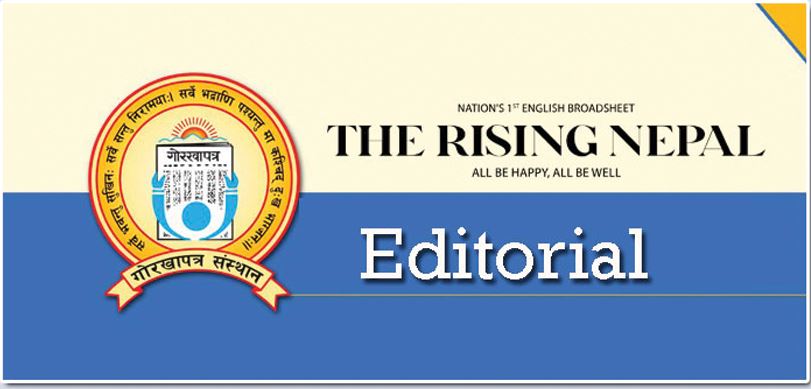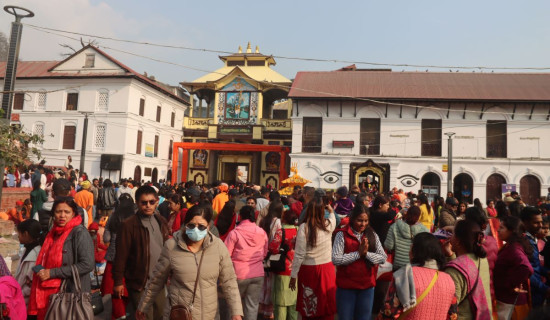- Saturday, 14 February 2026
Stride Against Poverty And The Road Ahead
Despite all the odds, Nepal has made great strides in reducing poverty in the second decade of the 21st century. According to a recent report jointly made public by United Nations Development Programme (UNDP) and the Oxford Poverty and Human Development Initiative (OPHI), the incidence of poverty was reduced from 39.1 per cent in 2011 to 17.5 per cent in 2019. That’s a giant leap, of course, and a music to ears for all Nepalis at home and abroad, boding well to the Nepalis in particular and for the world in general. This is so because in the age of globalsation, everything in the world is connected with everything else, meaning that all things are related in one way or the other.
Poverty is a curse on humanity, for it deprives the impoverished of the much-needed capital to progress or lead a decent life. It cripples every aspect of life, leading to hunger and forcing the poor to live in unhygienic shelter and stopping them from climbing academic ladder, among many other social evils. The fact that poorest people are out of reach of nutritious food and health facilities makes them vulnerable to a string of diseases. This explains why they die young compared with their richer cousins. “If you are born poor it’s not your mistake, but if you die poor it’s your mistake,” says Bill Gates, the former richest man of the world who perhaps held that title for more years than any other. His words ring truer than ever.
The report attributes the gains to a host of factors: the country’s investment in sanitation, child nutrition and improved access to safe drinking water, among others, which have significantly reduced child malnutrition and child mortality through the reduction in diarrhea. The organisation has also warned that the scattered poverty could pose a challenge to the country’s efforts to emerge out of poverty, saying that the most common deprivation profile is one where people are deprived in years of schooling, cooking fuel, housing and assets. Nearly one in 10 people in the country experience this profile.
For all the progress we have seemingly made in that period, it’s indisputable that the outbreak of the coronavirus pandemic in late 2019 have reversed some or all the gains made in reduction of worldwide poverty. A report published a year ago by a UN body estimates that the pandemic eliminated 32 million Indians from middle class. The same is true almost everywhere in the world, though the figure may vary from country to country.
Given such a scenario, it’s critical to be resilient to the shocks the world experiences time and again and leave us helpless if we are to make the gains in reducing poverty sustainable. No country has attained prosperity long relying on foreign donors; all now-prosperous nations have tirelessly worked their ways to development and prosperity. Nobody likes to live in poverty, but still so many are stuck in it. The pandemic has made poverty situation worse. As the world’s economy was emerging out of poverty, Russia-Ukraine war and the resulting fuel crisis and sky-high inflation has further threatened to impede our march. This must be solved without delay to see better days ahead again.

















